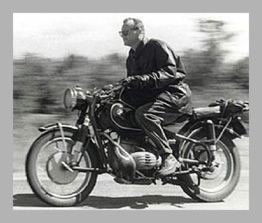COURSE STRUCTURE
The aim of this introductory topic of the course is to introduce students to the need to understand sport as a, contextually specific, social construct. Following the directions of C. Wright Mills (see right), this will involve encouraging the development of a sporting sociological imagination through which it is possible to discern how sport can only be understood, and is indeed only experienced, in relation to the broader forces (cultural, political, and economic) that have come to dominate and define contemporary American existence.
------------------------------------------------------------------------------------------------------------------
1. LECTURE
For six slides per page format (for printing) click : HERE
For one slide per page format (for viewing on computer) click: HERE
------------------------------------------------------------------------------------------------------------------
2. REQUIRED READINGS
It is expected that you will complete these readings following Wednesday lectures and in preparation for discussion section tasks/assignments.
In addition, within the Module 1 exam, you should expect to be asked questions on the following readings:
Reading I: Andrews, D. L. (2006). Situating sport. In Sport-Commerce-Culture: Essays on sport in late capitalist America (pp. 1-12). New York: Peter Lang.
Reading II: Havrilesky, H. (2014, October 14). Why are Americans so fascinated with extreme fitness? The New York Times Magazine.
------------------------------------------------------------------------------------------------------------------
3. VIDEO CLIPS
Some of these video clips will be viewed during lecture. However, you are expected to view those not shown in lecture in preparation for both the discussion section and exam related to this topic:
Video Clip 1: Final lap of men’s 10,000m race, London 2012 Olympic Games.
Video Clip 2: Runners in preseason training: Addis Ababa, Ethiopia.
Video Clip 4: YouTube clip focused on contemporary body expectations for males.
Video Clip 5: Short excerpt from the BBC documentary "Rise of the Cyberathlete" (January, 2015).
------------------------------------------------------------------------------------------------------------------
4. KEY CONCEPTS
The following key concepts represent the core knowledge related to this topic, and you should ensure that you develop a thorough knowledge and understanding of them in preparation for both the discussion section and exam related to this topic:
De-Naturalizing the Active Body
The Active Body as a Social, Cultural, Political, and Economic Phenomenon
The Importance of Critical and Theoretical Thinking
Using a Social and Cultural Theory Lens
Words/Theories/Concepts and Interpretation
Sport/Physical Culture as an Affective Domain
The Pleasure of Physical Culture
Competing Definitions of Sport
A Structured, Goal-Oriented, Competitive, and Ludic
Sport as/and Physical Culture
The Ontological Diversity of Physical Culture
The Active Body as Instrument and Object
The Range of Sporting Involvement
Sport/Physical Culture as a Contested Terrain
Dominant, Residual, and Emergent Sport Practices
The Relationality of Sport/Physical Culture
Competing Understandings of the Sport-Society Relation
Sporting Fetishization
The Sport-Society Dialectic
The Jigsaw Analogy
The Sporting Sociological Imagination
Sport Mapping: Interrelationships and Interconnections
Understanding Sport, Understanding Society
------------------------------------------------------------------------------------------------------------------
5. DISCUSSION QUESTIONS
Following the lecture, and having read the assigned readings and watch relevant video clips, you are encouraged to answer a series of discussion questions related to this topic which can be accessed HERE.
These questions require that you engage and extend the information covered within each theme, in order to generate a better understanding of core concepts, knowledge, and issues.
These questions are intended as preparation for both the discussion section and exam related to this topic.
------------------------------------------------------------------------------------------------------------------
6. ESSAY QUESTION #1 (this is an option for the mandatory Module 1 essay)
Using your sporting sociological imaginations, discuss the dialectic relationship linking a contemporary sporting BODY (i.e. those associated with the fitness industry, CrossFit, the Olympic Games, intercollegiate sport, Ultimate Frisbee, MMA, Tought Mudders, or the NFL Super Bowl) with the broader forces (economic, political, cultural, and technological) shaping contemporary society. In other words, you need to map the complex interconnections between your chosen sporting BODY and contemporary society.
This essay should be a minimum of 1,500 words to answer it comprehensively.
You may find the following academic sources useful in completing this assignment. You do not have to use these sources, they are simply provided for you as an introduction to the literature, and you should use them where appropriate and/or relevant. Also, be warned, these readings do not count towards the THREE additional academic sources you are expected to use within your essays (however, they may direct you toward additional academic sources you could use):
Silk, M. (2011). Towards a Sociological Analysis of London 2012. Sociology, 45(5),
Bethea, C. (2015, August 12). Ultimate Frisbee's Surprising Arrival as a Likely Olympic Sport. The New Yorker.
Fisher, M. (2015, April 5). Baseball is struggling to hook kid–and risks losing fans to other sports. The Washington Post.
If you choose to complete this essay, and in addition to the sources provided on this page, you need to identify and use (either through paraphrasing or direct quotation) interpretations, insights, or information from a MINIMUM OF THREE appropriate academic sources (in addition to those provided for you on this website).
The deadline for submitting (via the ELMS/Canvas website) your Module 1 Essay is 11.59pm ET on Friday October 23.
Important: The ELMS/Canvas website will not accept essays after the due time and date.
In order to receive feedback from your TA, you can submit a draft version of your essay up to and including 10.00pm ET Friday October 9.
Be sure to review the details on the module essay page. On that page you will find the EVALUATION CRITERIA for module essays (which you are strongly encouraged to read), you will also find links to the appropriate academic sources you should use when researching and writing your module essays, and the style and format guidelines you need to follow when completing module essays. All this information needs to be read, understood, and closely followed for you to succeed in this course.
------------------------------------------------------------------------------------------------------------------

